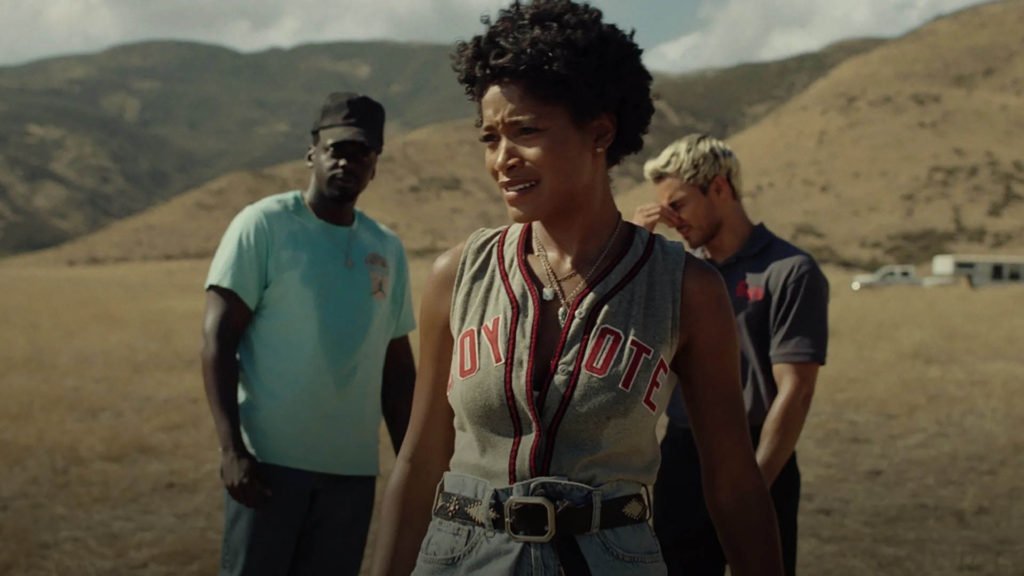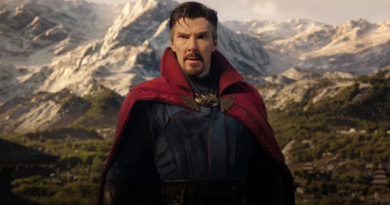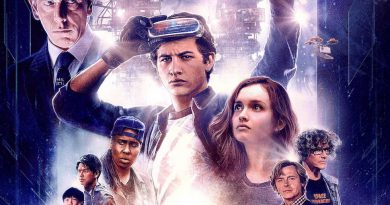Nope Will Leave You Nodding Your Head In Shock And Awe
Nope, written and directed by comedian-turned-horror savant Jordan Peele, revolves around the sentiment of “just because you can, doesn’t mean you should.”
The movie, the third in Peele’s catalog, proves that he has always understood what makes horror fans tick: the fear of the unknown. That idea is a fundamental concept Peele has presented, in the forms of racism and classism, in his last two movies.
Nope stars Keke Palmer, Daniel Kaluuya and Steven Yeun and features Brandon Perea, Michael Wincott and Keith David in supporting roles.
Peele’s latest hit tells the story of two siblings in California who try to make sense of a tragedy in their lives while several instances of unexplained extraterrestrial phenomena take place.
Palmer’s energetic performance as Emerald Haywood is in perfect tandem with Kaluuya’s stoic role as her brother Otis. The character is reminiscent of Robert Pattison’s ability to communicate thoughts and emotions with body language alone during his recent portrayal of Batman.
Otis’s name adds to the film’s theme of exploiting for spectacle by having his nickname be “OJ,” a reference to the infamous celebrity whose 1994 murder trial captivated the world.
When things start to become too uncomfortable to sit through, the avant-garde blockbuster reels you back in with many tools at its disposal.
For one, the cinematography is out of this world.
Hoyte van Hoytema’s atmospheric wide-shots and individual long-takes of Agua Dulce, California allows for a visual experience that makes the hairs on the back of your neck stand up. Another sequence uses close-ups so effectively that the thought of an enclosed space puts you in a coma.
The insidious segments are accompanied by the perfect sound design by Johnnie Burn. Whether it’s the clip-clop of hooves on the dirt or the abrupt shifts to natural silence, hearing it in the theater is the only way to soak up all it offers.
Nope hits the sweet spot between stellar filmmaking and writing. It redeems Peele after his previous film, Us, was criticized for having an inconsistent tone.
The film’s first frame quotes the bible verse Nahum 3:6 to introduce Peele’s examination of humanity’s obsession with the impossible.
Nope doesn’t use the conventional trope of a UFO sighting being equivalent to an alien invasion. Instead, it adds the significance of trauma and showcases the UFO’s behavior as more akin to an animal than that of an intelligent alien species.
This plays into the message of letting nature run its course instead of trying to domesticate it for our entertainment.
Another theme in the movie is exploitation. In the film, both of the Haywood siblings and the movie’s secondary antagonist are driven by a miracle. And while one ended and one saved a life, both seek to take advantage of something they can’t understand.
That constant desire to take advantage of the unknown can be interpreted as an allegory for Hollywood and its mistreatment of those behind the curtain.
Nope’s main takeaway is encapsulated in the line, “we don’t deserve the impossible.” The digital age has accustomed humanity to crave instant answers and amusement. However, it’s important that we learn to not poke the bear.
Click here to subscribe to our bi-weekly newsletter, The Hammerhead. For news tips, contact us at mdc.thereporter@gmail.com.




